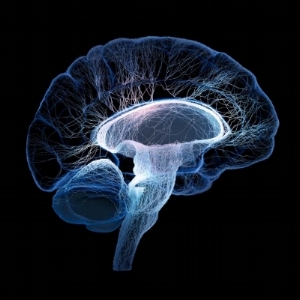The New Potato
Turns out Hippocrates was right. All disease begins in the gut. He made this statement over 2000 years ago and now we are discovering how true it really is. An unhealthy microbiome is linked to a myriad of illnesses including allergies, autism, blood sugar dysregulation, depression, diabetes, autoimmunity, cancer, heart disease, fibromyalgia, eczema, and asthma - so much so, the microbiome is being referred to as the second brain. Keeping your gut in tip-top shape is arguably the most important thing you can do to living a long and healthful life.
What is the microbiome?
The microbiome is the community of microorganisms including bacteria, fungi, protozoa and viruses living in the human body. The human gut is home to approximately 100 trillion microorganisms. The are 100x more bacterial DNA in the gut than all the DNA in the human body. According to Chris Kresser, Functional Medicine and ancestral health clinician and educator, gut microbes regulate 70 to 80 percent of the immune system, influence blood sugar control, modulate the function of the brain, bone, heart, skin, eyes and muscle tissue.
How does the microbiome become unbalanced?
A poor diet. The Standard American Diet chock full of pro-inflammatory processed foods, refined carbohydrates and industrial seed oils will do the trick. Couple this with low fermentable fiber intake and essentially, the ecosystem of the gut is starved of the bacterial diversity.
Chronic stress. Your gut is influenced by thoughts and emotions. Stress directly signals the release of chemicals that disruptively impact gastric secretion, gut motility, and gut permeability. Conversely, an impaired gut microbiome also affects mental health and wellbeing.
Chronic infection. Underlying viral, bacterial and fungal infections, often undetected, negatively impact the make up of gut bacteria.
Medication. While the use of antibiotics and the degradation of the gut microbiome is quite well known, other medications such as birth control, NSAIDs (non-steroidal anti-inflammatory drugs) and Proton pump inhibitors also significantly alter the gut..
Lack of sleep. We are obsessed with good sleep in our house. With good reason. One is the impact it can have on the gut. A dysregulated circadian rhythm and not getting enough good quality sleep can contribute to imbalances in the gut microbiome.
7 steps to better gut health.
Eating real foods is the first step.
Focus on eating unprocessed, unrefined real food - meaning as close to the way nature delivers it as possible.
Cut out refined sugars and other refined carbohydrates.
Eat lots of plants, including prebiotic foods that feed healthy gut bacteria.
Take a high quality probiotic supplement. I take SEED.
Remove inflammatory vegetable oils from the diet and replace them with healthier oils such as extra virgin olive oil, coconut oil and avocado oil.
Eat plenty of fermented foods such as kimchi, sauerkraut, yogurt, and kefir to help boost the population of healthy bacteria in the gut.
Eat healing, collagen-rich foods such as bone broth which fights inflammation and nourishes the intestinal lining. Here are some additional benefits of bone broth along with a delicious homemade recipe.
Manage your stress levels.
Here are some ways to cultivate a healthy mindset.
Here are a few breath work protocols to effectively help manage stress.
Use resources to help to start a mediation practice. Headspace and Insight Timer are my favorites.
Check for possible underlying infections. Stool testing is a valuable tool - ask your doctor.
Exercise. Regular movement helps keep gut microbes in tip top shape. Develop a sustainable routine. Here are some ideas.
Tidy up your sleep hygiene. Seven to eight hours of high quality sleep are ideal for supporting gut health. Need some tips on how to get there? Turn your room into a dark, cool cave, minimize blue light post sundown and try to maintain a regular sleep-wake schedule, even on the weekends. You can find many more tips here.
You’ll be surprised at how much of an impact reseting your gut will have on your overall life. It will positively effect your sleep, help you lose those extra pounds you can’t seem to shed, give you more energy, improve your digestion, reduce inflammation and clear your brain. Oh, and your skin will glow! Join us on our inaugural Bone Broth and Mini-Fast Reset in January. For more information, see here.
By the way, this would make an awesome holiday gift to a loved one or yourself!












